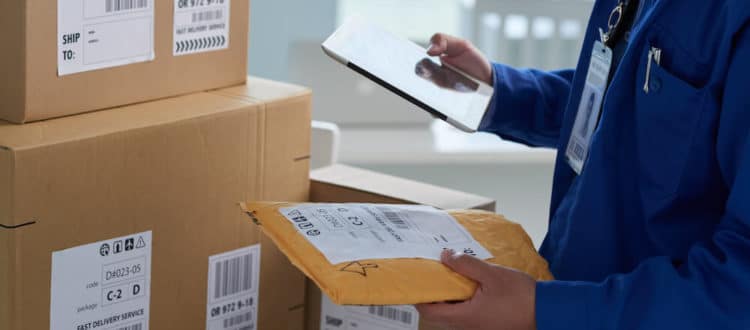How to Easily Deliver Your Supplement Product Beyond Borders
Whether you are the owner of an eCommerce business or are planning to become one, you will probably look into international shipping to broaden your services to potential customers as you grow. A common misconception within the industry is that businesses have to be large and established before shipping beyond national borders. However, small businesses also are more than qualified to handle shipments on an international level.
If you are a small business interested in shipping internationally, choosing the right logistics partner will allow you to open your doors to other countries sooner than you’d think. And although shipping internationally may have its initial complexities, it can be worth it in the long run. Offering your product internationally can be an important growth area for your business, even if you only ship some products out, so it’s worth tackling the logistics head-on.
To help you navigate the international shipping landscape and grow your total market, we’ve compiled some of the most important strategies and logistics so you can open your business to a global client base.
1. Build an International Shipping Strategy
Before you expand your eCommerce store to international orders, there are a few lucrative decisions you’ll have to make. First and foremost, you’ll have to identify which products in your line you want to ship out. You’ll also have to decide the regions and countries you want to expand your reach too. If you’re not sure where to ship to, it is always a good idea to start small and close. By keeping your shipments close to home, you’ll be able to set reasonable expectations for customers on delivery time and rates.
When deciding which regions to ship to, turn to your data for guidance. Ask yourself: “Which markets/countries are visiting my store/site? Which items appeal most to international customers?” With this knowledge, you’ll be able to better understand what international buyers are looking for. When you have chosen the regions and countries you want to ship to, make sure to thoroughly review the country’s rules and regulations regarding customs, products, and deliveries. Being informed will allow you to guarantee a smooth shipping and delivery process.
2. Always Ship DDP
Delivery Duty Paid (DDP) is an agreement and method of shipping in which the seller takes responsibility for all the potential costs and taxes that come with product shipment and delivery until they have arrived at their destination. In broader terms, it means that customs and other international tariffs will be handled on your end. So, why ship DDP whenever possible? The main advantage of shipping DDP is that it eliminates the unpredictability of customs, duties, and tariffs at the country of destination so you can guarantee a smooth delivery.
Getting through customs can be an especially complicated process that can greatly extend the timing of your shipment, which reduces the overall appeal of international shipping for many brands. However, by shipping DDP, your brand can provide an extra level of security and confidence that your product will make it to its destination with no problems. As mentioned earlier, before you ship, make sure to do your research about each area’s regulations to avoid risks and provide the best possible service.
3. Negotiate Discounts Based on Volume
While you may assume that shipping costs are fixed costs, that’s not the case. Each shipping service you use will have different rates for your products. That’s why it is important to negotiate discounts based on volume whenever possible. Many service providers are willing to negotiate shipping costs if you are sending a considerable amount of orders regularly. After all, the more business you give a carrier, the more invested they’ll be in keeping you as a customer. This means that if you can guarantee a certain volume of goods every month, you can request a discount with your carrier.
However, it is important to keep in mind that this process requires proper research and oversight on your end to make sure that you are not undershipping or overshipping your products. These discounts may not seem like much at first, but they can greatly lower the overall costs of your business and give you a baseline on how much you will spend every month.
4. Partner with a Regionally-Focused Provider
One of the most important steps in the international shipping process is finding a partner who works best with your business. All businesses have different and unique needs, which is essential when factoring in who to work with. As such, you need to make sure that your partner will be able to fulfill all your shipments and requests promptly. Another important aspect to consider is whether your potential provider is regionally-focused. When we say regionally-focused, we mean within the region you are looking to ship to. Make sure to properly research the market to find a reliable, well-known partner who can provide you with the best care and service whenever issues arise. A regionally focused provider will know that specific region’s rules and regulations, allowing you to better understand how to navigate compliance and regulatory rules in the market. This will allow for a safer, smoother, and more efficient shipping process for your business and for the customer.
5. Make Bookings with Your Carrier Early
When dealing with international shipments, it’s important to book your freight forwarder as early as possible. This will allow you to secure space within the airline or shipping line to make sure your products ship on time. Booking early is essential to providing quality shipment service, especially during uncertain times like we have seen with the COVID-19 pandemic and the supply chain disruption. More often than not, businesses that are not able to secure their spots early run into shipping delays and obstacles, which increases delivery times and rates. Additionally, it will also negatively impact your customer base – no one likes a late package. Making bookings early will help you avoid all these logistical issues and increase customer satisfaction.
Key Takeaways
Shipping internationally can be a daunting task at first glance, but it’s a necessary step to consider if you want to expand your markets and help your business grow. Brands that can ship their products successfully will be able to stay ahead of the competition in a saturated industry and capture more market share.
Supplement brands looking to ship internationally should consider these tips to make sure their shipping experience is as seamless as possible. Contact Paragon Laboratories to learn more about the eCommerce space and how to leverage strategies to grow your business.


